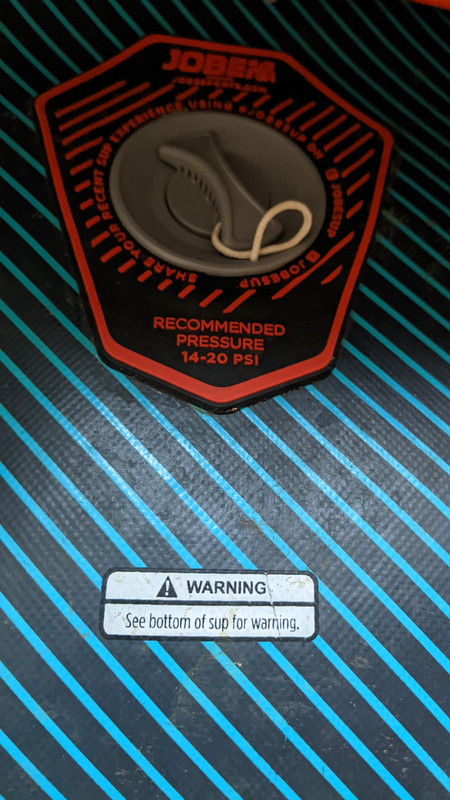Home › Forums › Chat Forum › Most banal nonsense on packaging
- This topic has 73 replies, 46 voices, and was last updated 2 years ago by thisisnotaspoon.
-
Most banal nonsense on packaging
-
funkmasterpFull MemberPosted 2 years ago
No one needs cucumbers – food of the devil that taints everything it touches! 🙂
they’re just water disguised as a green phallus.
I hate packaging that try’s to be your friend. “Hey I’m a smoothie and I contain blah, blah. Why not call us and” **** off.
Not packaging, but I once saw a BSO with a massive label on the toptube.
CAUTION! NOT FOR STUNTING!
might have that on a topcap.
tomdFree MemberPosted 2 years agoGot a bottle of Aldi mega cheap sparkling Asti that promised “It is an ideal wine for those that enjoy this type of wine.”
Brilliant – they know the target customer for £3 wine.
slowoldmanFull MemberPosted 2 years agothat is for the daily fail consumers
Ah, that lot. I stand at the magazines thumbing through Rouleur whilst tutting at the DM purchasers.
angrycatFree MemberPosted 2 years ago+ 1 on cucumber being evil – duck with spring onions and hoisin sauce gets rendered completely inedible if cucumber has even touched it.
Disgusting!mattyfezFull MemberPosted 2 years agoI take your point but we are clutching at strands of wheat here, if a pig is fed on grain, then does that mean it’s not gluten free?
top quality British ham
There is no such thing, last time I checked, Nigel Farage was still alive and not hung in a curing shed covered in salt. 😉
maccruiskeenFull MemberPosted 2 years agoanti-food waste cafe
I’m not sure that hyphen is where it should be 🙂
Down with food. Eat waste?
maccruiskeenFull MemberPosted 2 years ago“It is an ideal wine for those that enjoy this type of wine.”
I have an album of easy-listening pop covers on the electric zither by Hubert Wolf – the translated German sleeve notes proclaim that its ‘the ideal music for dull parties’
sirromjFull MemberPosted 2 years agoCan I mention 72hr antiperspirant in this thread? It’s a bit more than the packaging I see as the problem here. Just the whole concept.
CougarFull MemberPosted 2 years agoGot a bottle of Aldi mega cheap sparkling Asti that promised “It is an ideal wine for those that enjoy this type of wine.”
Aside, I was in Lidl the other day and someone on the next checkout over was buying a bottle of plonk which proclaimed “DRY AND CRISPY” in inch-high letters on the label. They wanted another, so the till operator yelled for assistance, “need another wine, dry and crusty!”
mattyfezFull MemberPosted 2 years agoAnecdotally I think it was either lidl or aldi that won a best gin contest in a blind test a few years back up against several posh more expensive ones.
I can’t comment as I can’t stand gin, it’s vile… But it seemed to ruffle a few feathers.
robertajobbFull MemberPosted 2 years agoMy parachute (American made) had a big Day-Glo panel about the size of an A4 sheet covered in warnings.
It advised me to the effect that jumping out of an aeroplane at 13,000ft up and using this thing could be dangerous if I didn’t know WTF I was doing.Always thought.
1. NSS.
2. It’s going to be a whole lot MORE dangerous if I DON’T use this thing after jumping from 13’000 ft.squirrelkingFree MemberPosted 2 years agoThe botanic gardens in Edinburgh sell bags of peanuts to feed the squirrels with a warning that they contain nuts
Either they need a good slap and a long stand in the corner or they did that deliberately to upset people.
mattyfezFull MemberPosted 2 years ago2. It’s going to be a whole lot MORE dangerous if I DON’T use this thing after jumping from 13’000 ft.
Pretty sound logic to be fair 😀
timbaFree MemberPosted 2 years agoNytol, an over-the-counter sleep aid. The side-effects include fatigue and drowsiness. Really? That’s a shocker
helsFree MemberPosted 2 years agoI almost forgot my favorite – which is so endemic I don’t even see it anymore.
“ideal eaten hot or cold”.
kayak23Full MemberPosted 2 years agoMy paddleboard has a little label on the top saying ‘Warning! Warning label is underneath’ 🤔
It actually is this…
 ernielynchFull MemberPosted 2 years ago
ernielynchFull MemberPosted 2 years agoThe botanic gardens in Edinburgh sell bags of peanuts to feed the squirrels with a warning that they contain nuts
Either they need a good slap and a long stand in the corner or they did that deliberately to upset people.
I’m going for deliberately did it to upset people.
Everyone knows that peanuts are legumes and not nuts.
It would be like claiming “may contain apples” on a tin of pineapple chunks. Taking the piss.
nickcliftFree MemberPosted 2 years agoA picture of a bowl full of cornflakes on the box, underneath it says ‘serving suggestion’ …… just as I was about to empty them out onto the kitchen work top.
CougarFull MemberPosted 2 years agoYou know why that is though, don’t you. If they didn’t write “serving suggestion” then some shitwit would be complaining to Kellogg that they were shocked to discover that there was no milk included in the box.
binnersFull MemberPosted 2 years agoI bought a big bag of salted peanuts that had the following on the pack
1. Sharing pack
2. re-sealable bag
Nope. neither of those things will be happening 😀
stevextcFree MemberPosted 2 years agomattyfez
I take your point but we are clutching at strands of wheat here, if a pig is fed on grain, then does that mean it’s not gluten free?
That wasn’t really what I was referring to … more the use of fillers and texturisers if we are talking about pig meat.
In the wider context if following FAO-WHO rules as defined in the Codex Alimentarius (CXS 118-1979) a serrano ham should not be labelled gluten free (4.3) because it should not contain gluten anyway. They may however label it gluten free if they inject some gluten >0 and <=20mg/kg. (2.1.1)
This then gets very vague until we get to a cooked breaded ham which absolutely can be labelled gluten free as a breaded ham would by normal preparation contain gluten. (2.1.2)
This is then defined seperately under
3.1 For products referred to in 2.1.1 a) and b), the gluten content shall not exceed 20 mg/kg in the food as sold or distributed to the consumer.
3.2 For products referred to in 2.1.2 the gluten content shall not exceed 100 mg/kg in the food as sold or distributed to the consumer.4.3 A food which, by its nature, is suitable for use as part of a gluten-free diet, shall not be designated “special dietary”, “special dietetic” or any other equivalent term.
The whole grey area starts at not being allowed to label an onion as gluten free… but then what if I add some tomatoes, herbs and garlic and call it “pasta sauce”? A producer then needs to argue that wheat flour is a “normal” thickening agent and by using an agent such as corn starch they can label the product as gluten free or suitable for special dietary needs. Or they can take the easy way and just inject a small amount of wheat gluten to make sure they comply…
Bear in mind there is no clinical evidence for the 10 or 100 mg/kg limits. It is simply determined by what is convenient to test. There was one (sponsored) paper back in I think the 80’s.. that determined “damage to the villi was no greater than” people who said they were following a gluten free diet. (which is itself meaningless as the control group were not actually tested to see how well they were following what they assumed/thought was gluten free but would be very unlikely to be)
A while ago (ok 2 decades) Asda had an exec that was coeliac and they tried to actually do this properly.. at least in a way made sense to their customers but I think they eventually gave up.
thisisnotaspoonFree MemberPosted 2 years agoCan I mention 72hr antiperspirant in this thread? It’s a bit more than the packaging I see as the problem here. Just the whole concept.
In my naivety I once questioned a friend what 24h mascara and lipstick was for. You’re not meant to leave it on for 24h, it’s just resistant to anything you might get upto in 24h 😳
A bit like a 3 season sleeping bag isn’t actually meant to be slept in for 9 months solid.
johnnystormFull MemberPosted 2 years agoIn fairness to the Coop(?) I’m broadly in favour of their ice packaging, not for flag-shagging reasons but because shipping tap water any further than it needs to be should always be discouraged.
ernielynchFull MemberPosted 2 years agoIs there really any possibility that water would be imported into the UK to make ice cubes?
Why? What would the advantage be and which country would the water come from? Flown in from Spain?
thisisnotaspoonFree MemberPosted 2 years agoIs there really any possibility that water would be imported into the UK
Maybe not for ice, but for equally pointless purposes, and in tiny non-thirstquenching bottle sizes.
 CougarFull MemberPosted 2 years ago
CougarFull MemberPosted 2 years agoBottled water surely needs to go the way of plastic carrier bags. It’s absolute madness. We’re crying about petrol pushing £2/litre whilst cheerfully paying more than that for something which literally falls out of the goddamn sky and is piped into almost every house in the country.
ernielynchFull MemberPosted 2 years agoYeah I would be worried too if the water to make ice cubes came in small plastic bottles from overseas.
Is a Evian ice cubes a thing? I haven’t a clue, I’m not posh enough to enjoy any drinks that require ice cubes.
ossifyFull MemberPosted 2 years agoBottled water surely needs to go the way of plastic carrier bags. It’s absolute madness. We’re crying about petrol pushing £2/litre whilst cheerfully paying more than that for something which literally falls out of the goddamn sky and is piped into almost every house in the country.
Agreed in principle… but we drink tons of bottled water, mainly because tap water tastes horrible, even cold from the fridge or filtered. We used to hardly drink and now we drink plenty of plain water (the 17p for 2l stuff from Morrisons, not Evian!)
If they could pipe it to the house or do something else to avoid the bottles that would be great.
CougarFull MemberPosted 2 years agotap water tastes horrible
Are you a Southerner? It tastes fine up here. 😁
London tap water mings, so sell it in gallon bottles rather than 500ml.
thisisnotaspoonFree MemberPosted 2 years agoLondon tap water mings,
Depends what you’re used to. I’ve moved north and south more times than
you’ve had hot dinnersTon’s changed bikes. Each time it tastes awful for a couple of weeks then it’s fine.
You must be logged in to reply to this topic.
